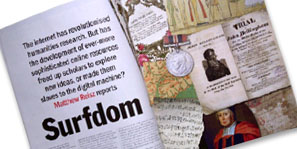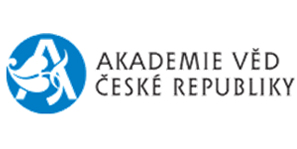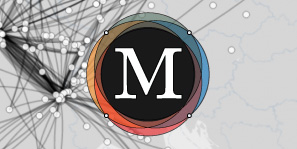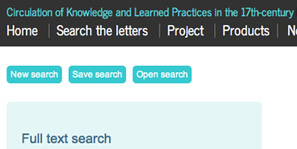Correspondence was the information superhighway of the early modern world. Between 1550 and 1750, regular exchanges of letters encouraged the formation of virtual communities of people with shared interests in various kinds of knowledge which stretched across the globe. Classical scholars, philologists, antiquaries, patristic scholars, orientalists, theologians, astronomers, botanists, experimental natural philosophers, intelligencers, ‘free-thinkers’, and many other denizens of the Republic of Letters: all cultivated and sustained their professional, social, intellectual, and cultural lives in and through epistolary systems.

Detail from A Caricature of a Man with Four Flying Letters, by Pier Francesco Mola. c.1647–57, pen and ink and wash on paper (Victoria and Albert Museum, London).
Since 2009, the Cultures of Knowledge project, based at the University of Oxford with the generous support of The Andrew W. Mellon Foundation, has been using a variety of research methods to reassemble and understand these networks. During our first phase of activities, between 2009 and 2012, we focused on the creation of traditional critical editions and other hard-copy research deliverables; the fostering of a modern epistolary community, and the refinement of analytical frameworks, at seminars, workshops, and conferences; and development of a proof of concept beta for a union catalogue of sixteenth-, seventeenth-, and eighteenth-century correspondence, which we called Early Modern Letters Online (EMLO).
In our second (January 2013 – March 2015), and third (April 2015 – March 2017) funded phases, we focused on the metadata aggregation, systems development, and community-building necessary to turn EMLO into a major resource in the field. Pilot Projects and an Events programme added depth and context to these activities.
In Phase IV (April 2017 – September 2018) our main agenda will be (1) to decouple our systems for handling early modern people, places, and dates from the core system for handling letter records; (2) to define new capabilities for these systems on the basis of eight years of experience and dialogue with a wide range of partners; (3) to launch Early Modern People and Early Modern Places as free-standing, Linked Open Data resources that will be capable ultimately of being used and populated independently of EMLO; (4) to launch Early Modern Dates as a free-standing web-service able to reconcile multiple calendars; and (5) to integrate and interlink these databases with EMLO and other relevant Linked Open Data resources.

Team
Find out more about the academics, developers, and designers – epistolary enthusiasts all – that comprise the Cultures of Knowledge community.

Papers & Publications
Stop Press! Explore our rich archive of publications, presentations, and publicity, going back to the very earliest days of the Project.
We are fortunate to enjoy the financial support, expertise, and infrastructure of several sponsor and partner institutions, whose generosity and friendship we gratefully acknowledge. First and foremost, we are funded by the Scholarly Communications program of The Andrew W. Mellon Foundation, who awarded the University of Oxford $393,000 for a further 18-months of work starting April 2017.
In Oxford, we are based in the Faculty of History, but also benefit the expertise and input of departments throughout the Humanities Division, especially the Faculty of English Language and Literature. EMLO has been developed by colleagues in the Bodleian Libraries, specifically the crack team of R&D programmers within Bodleian Digital Library Systems and Services (BDLSS). Full details of the technical group involved can be found on the Team page.
 We have also cultivated close relationships and collaborations beyond Oxford, which we hope to extend over the duration of the project. From the outset of the Project’s first phase, our closest international partners have been at the Department of Comenius Studies in the Institute of Philosophy of the Academy of Sciences of the Czech Republic in Prague. As well as co-organising the inaugural series of workshops in Prague, Cracow, and Budapest, and the 2010 Universal Reformation conference in Oxford, they have been active throughout the project in preparing the Comenius catalogue for EMLO, and adding prosopographical material to it in the current phase. The Prague Comenius team have also raised additional funding for an international collaborative project on ‘Correspondence Networks Between Central and Western Europe: From Comenius and Kircher to Hartlib and Oldenburg’, which will include further lectures and workshops in cooperation with the Project.
We have also cultivated close relationships and collaborations beyond Oxford, which we hope to extend over the duration of the project. From the outset of the Project’s first phase, our closest international partners have been at the Department of Comenius Studies in the Institute of Philosophy of the Academy of Sciences of the Czech Republic in Prague. As well as co-organising the inaugural series of workshops in Prague, Cracow, and Budapest, and the 2010 Universal Reformation conference in Oxford, they have been active throughout the project in preparing the Comenius catalogue for EMLO, and adding prosopographical material to it in the current phase. The Prague Comenius team have also raised additional funding for an international collaborative project on ‘Correspondence Networks Between Central and Western Europe: From Comenius and Kircher to Hartlib and Oldenburg’, which will include further lectures and workshops in cooperation with the Project.
We also work regularly with the following epistolary enterprises:

MRofL
Mapping the Republic of Letters, the pioneering visualization project headquartered at Stanford University.

CKCC
Circulation of Knowledge and Learned Practices in the Seventeenth-Century Dutch Republic, the innovative epistolary text-mining initiative based at Huygens ING.
These external correspondence projects are engaged on their own intensive programs of research and tool-building, and we have some exciting things in store over the coming two years. A fuller history of our collaboration can be consulted on the CKCC website.
